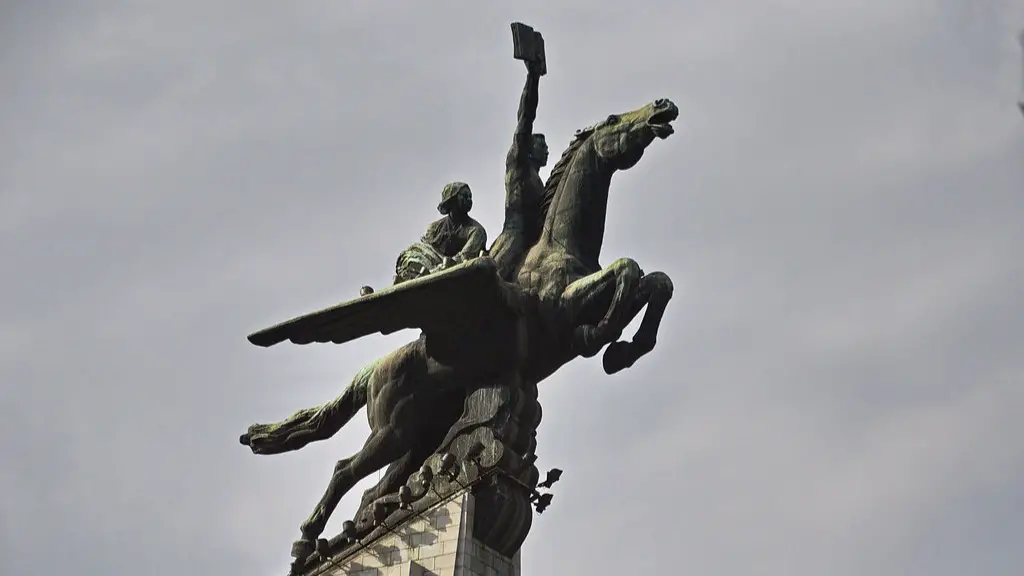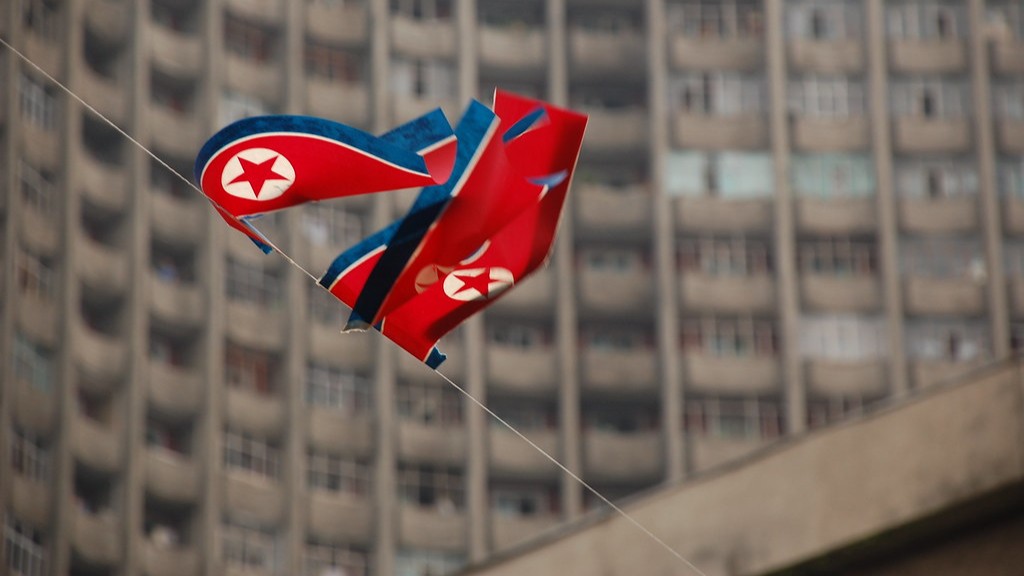North Korea is a reclusive state located in east Asia, sharing its borders with China, Russia, and South Korea. It has long been known as “The Hermit Kingdom” because of its strict self-imposed isolationist policies and repressive regime. North Korea has been able to remain isolated in part due to its formidable military, as well its strong dependence on outside powers. Here is a closer look at why North Korea is referred to as the Hermit Kingdom.
Geographic Location
The geographic location of North Korea plays a significant role in its ability to remain isolated from the rest of the world. Its borders with China and Russia give it a natural buffer from most of the outside world and the heavy presence of security along the South Korean border keeps most people out. North Korea has also been able to rely on China and Russia for trade and diplomatic relations while avoiding the necessity of interacting with other nations.
Political Structure
The hermit-like behavior of North Korea is facilitated by the regime’s authoritarian approach to politics. North Korea is ruled by the Kim Family dynasty, led by Kim Jong Un, and the country’s legislature is dominated by the Korean Workers’ Party. All aspects of North Korean life are highly monitored and restricted, with individuals who violate the government’s rules subjected to severe punishments and human rights violations. Although the government is not totally successful in isolating itself from the outside world, it has managed to maintain an authoritarian structure with very little outside interference.
U.S. Sanctions
The United States has imposed economic sanctions on North Korea since the 1950s in an effort to quarantine the country’s nuclear weapons development and human rights abuses. The sanctions have succeeded in limiting North Korea’s access to global markets and preventing them from conducting business with other nations. Furthermore, they have also put a strain on North Korea’s economy and made it difficult for the government to obtain resources to support its isolationism. Although the sanctions have not stopped North Korea from becoming a hermit kingdom, they have created an environment of economic hardship that makes it difficult for the country to engage with the outside world.
Military Might
North Korea’s military might has been a key factor in its ability to remain a reclusive nation. The country has a large and well-trained military that is heavily armed and has consistently conducted military exercises that are designed to intimidate its neighbors. In addition, North Korea has conducted numerous nuclear weapons tests and has developed long-range missiles that have increased its ability to launch a successful pre-emptive attack. This has enabled North Korea to maintain a high degree of control over its borders and to manage the threat of outside forces.
Cultural Isolation
North Korea’s hermit-like behavior also stems from its extreme cultural isolation. The government controls the country’s media and has imposed strict restrictions on the types of content North Koreans can access. This includes limiting access to outside news sources, literature, and entertainment. In addition, North Korea’s citizens are prohibited from engaging in international travel and interacting with foreigners. This extreme level of cultural control has enabled the country to remain removed from most of the outside world.
International Relations
North Korea’s isolationist tendencies have also been further enabled by its poor international relations. Since its inception, North Korea has had strained relations with the West and its other neighbors, leading to frequent diplomatic crises. The country has also been heavily sanctioned by the international community for its nuclear weapon tests and human rights violations. This diplomatic tension has enabled North Korea to remain largely isolated from the rest of the world and is one of the main reasons why it is referred to as the Hermit Kingdom.
Economic Dependence
North Korea is also economically dependent on China and other external powers, which further limits its ability to have open relations with the rest of the world. China is North Korea’s largest trading partner and is responsible for providing it with much of its food and fuel. This dependence on external powers makes it difficult for North Korea to engage with other nations and reduces its ability to interact with the outside world.
International Influence
The hermit-like behavior of North Korea has had an impact on its regional neighbors as well. North Korea’s isolationist approach has disrupted regional politics and increased tensions between states in the region. The country’s nuclear weapons program has also alarmed South Korea and Japan, as well as the United States and other countries. This has led to increased diplomatic and economic sanctions that are designed to limit North Korea’s ability to remain a hermit kingdom.
Conclusion
North Korea’s self-imposed isolationist policies and rigid authoritarian structure have enabled it to remain a hermit kingdom even in the face of outside interference. Its geographic location and military might have provided it with a natural buffer from most of the rest of the world while its economic dependence on outside powers has further enabled it to remain removed from the global stage. North Korea’s isolationism has also had a negative effect on the region, leading to increased diplomatic tension and sanctions.


